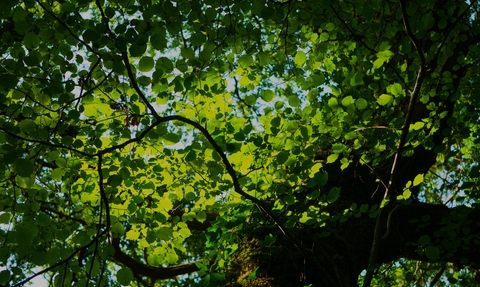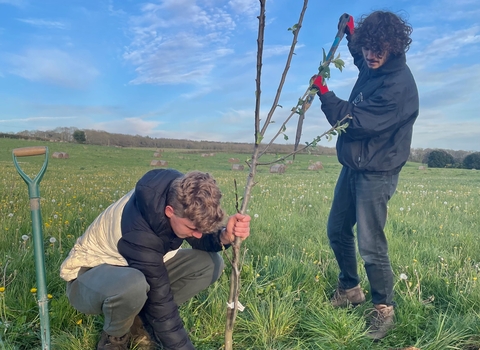
James Burland / Trees at Bracketts Coppice
Trees for Tomorrow
Trees for Tomorrow: The Big Give, April 22-29 2025
This April, we took part in the Big Give Green Match Fund week, with every pound donated up to our £40,000 doubled by the Big Give's match funding. The response was fantastic, and we reached a total of £49,072 donated through the Big Give, including Gift Aid.
We know that wildlife and people benefit from trees, but sadly, climate change, disease and invasive species threaten to change the landscape forever. Intensive agriculture and human development squeeze woodlands into ever-smaller pockets. And without healthy woodlands we are increasingly at risk from flooding, soil erosion and carbon emissions. A huge thank you to everyone who supported the Trees for Tomorrow appeal and helped ensure we can plant more native trees in Dorset for the benefit of nature and people.
Every tree we plant helps restore habitats, support wildlife, and combat climate change. But we can’t do it without you. . . . Together, we can create a wilder Dorset – for wildlife, for people, for tomorrow.Species Survival Fund Project Manager, Dorset Wildlife Trust
Raising £40,000 for tree planting in one week
By planting trees and managing woodlands we'll connect and restore precious habitats for wildlife such as dormouse, hedgehog and spotted flycatcher. These woodlands support wildlife and boost biodiversity by creating habitat networks. Healthy woodlands also mitigate against climate change - reducing flooding, stabilising soils, and storing carbon.
We will plant 6,000 trees at three of our nature reserves – West Holme, Ashington Meadow at Happy Bottom and Lyscombe – covering approximately 3.2ha. New trees will connect existing woodland, creating wildlife corridors for species to move and spread across the landscape. New wooded areas will expand habitats and sequester carbon (capturing over 13t of carbon dioxide equivalent per year). By careful expansion and management, we will enhance the resilience of precious woodland landscapes.

Helen Unitt-Jones / Bere Regis Scouts planting trees for the community food forest
Tree Planting for Wildlife
Seb Elwood's latest blog on the benefits of tree planting including carbon capture, improved soil health and reduced compaction, reduced flooding, reconnecting fragmented habitats, and of course, supporting the many species that use trees for feeding, nesting, or sheltering.
